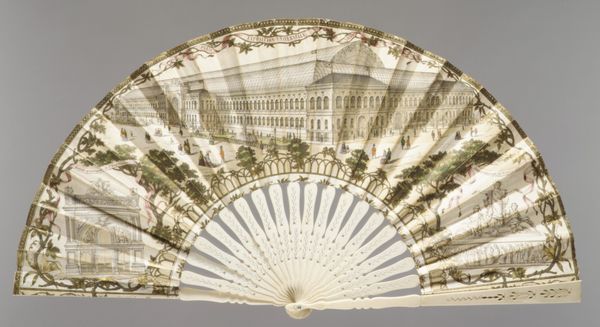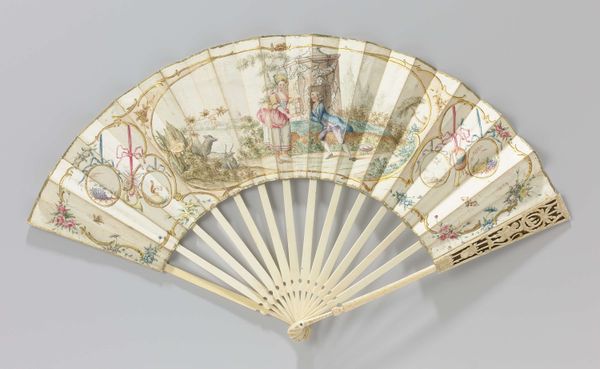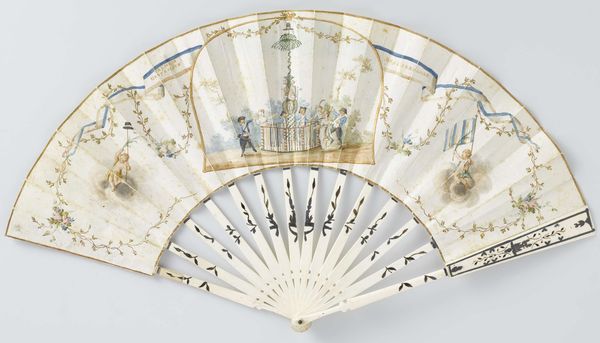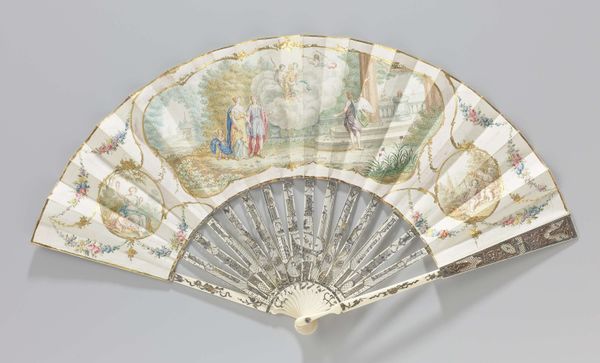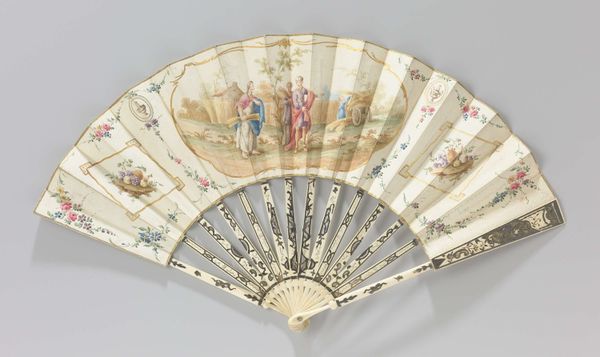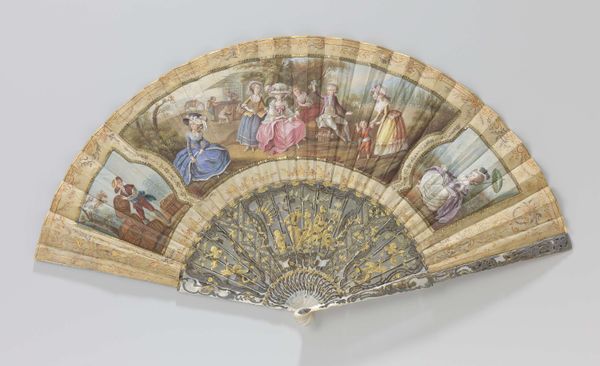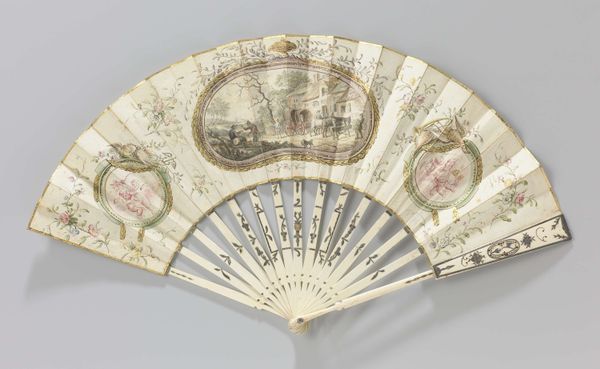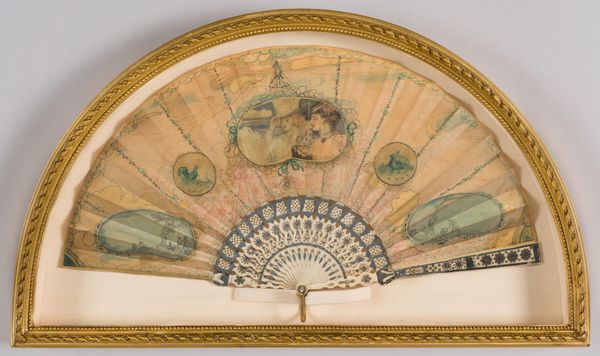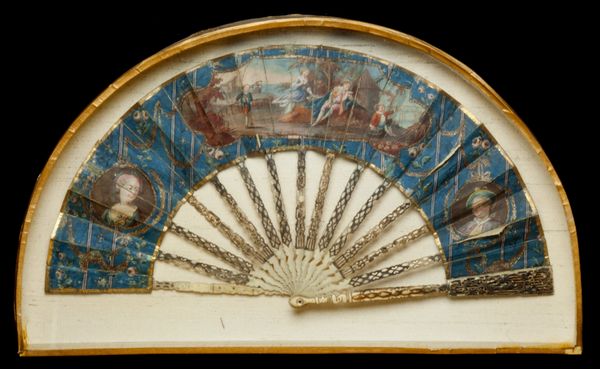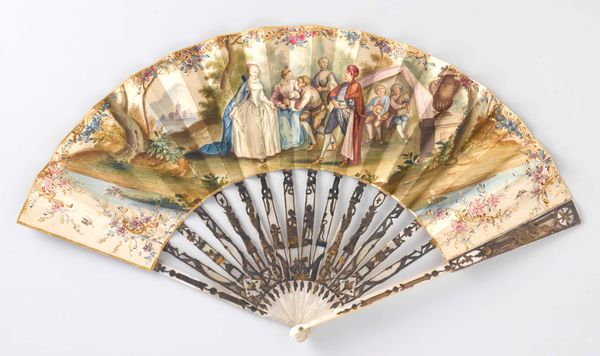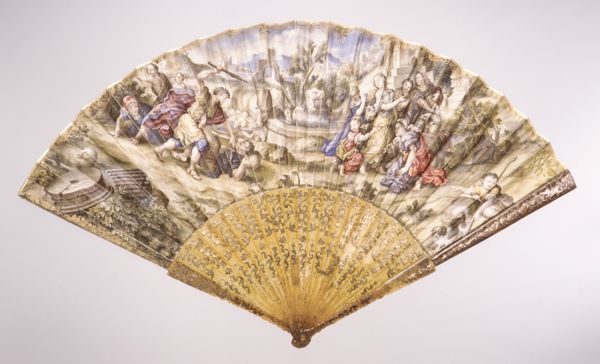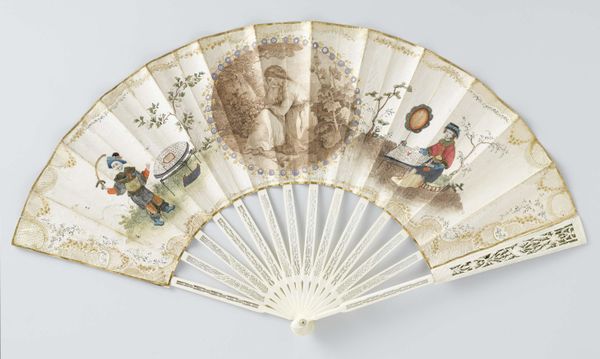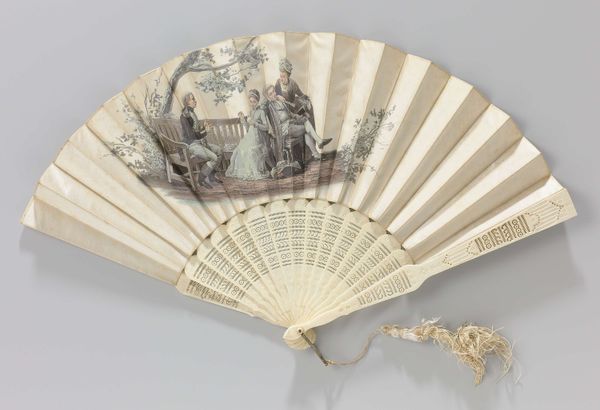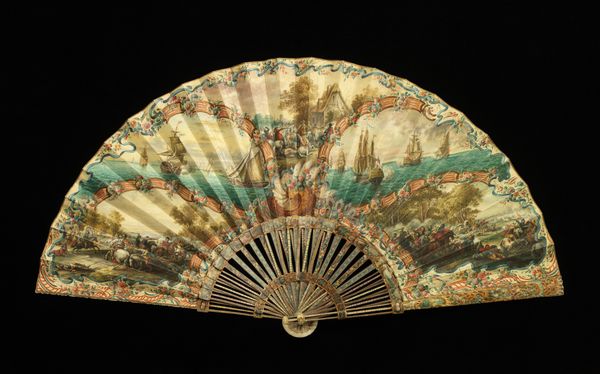
Vouwwaaier met blad van geitenleer, waarop met gouache het Colosseum, de thermen van Caracalla (l) en de Tombe van Caecilia Metella (r), op ivoren montuur before 1787
0:00
0:00
drawing, tempera, painting, gouache
#
drawing
#
tempera
#
painting
#
gouache
#
landscape
#
classicism
#
academic-art
#
italian-renaissance
#
miniature
Dimensions: span 51 cm, length 28 cm
Copyright: Rijks Museum: Open Domain
This is a folding fan, likely made in Italy in the late 18th or early 19th century, with gouache on goatskin and an ivory frame, by Camillo Buti. It depicts the Colosseum, the Baths of Caracalla and the Tomb of Caecilia Metella. The fan was a crucial, though easily overlooked, accessory in the rituals of polite society. Its decoration was anything but incidental; the fan was an indispensable tool for the display of taste and social status. Here, the fan’s owner displays their taste for classical antiquity. By the late 1700s, the ruins of ancient Rome had become a popular destination for wealthy Europeans on the Grand Tour. We might wonder if the owner of this fan had actually visited these sites, or whether she simply wished to be associated with the cultural prestige that they represented. These are questions that the social historian of art might ask. Auction records and inventories of personal property, along with manuals of etiquette, can help us to understand the place of objects like this in the daily lives of people in the past.
Comments
No comments
Be the first to comment and join the conversation on the ultimate creative platform.
